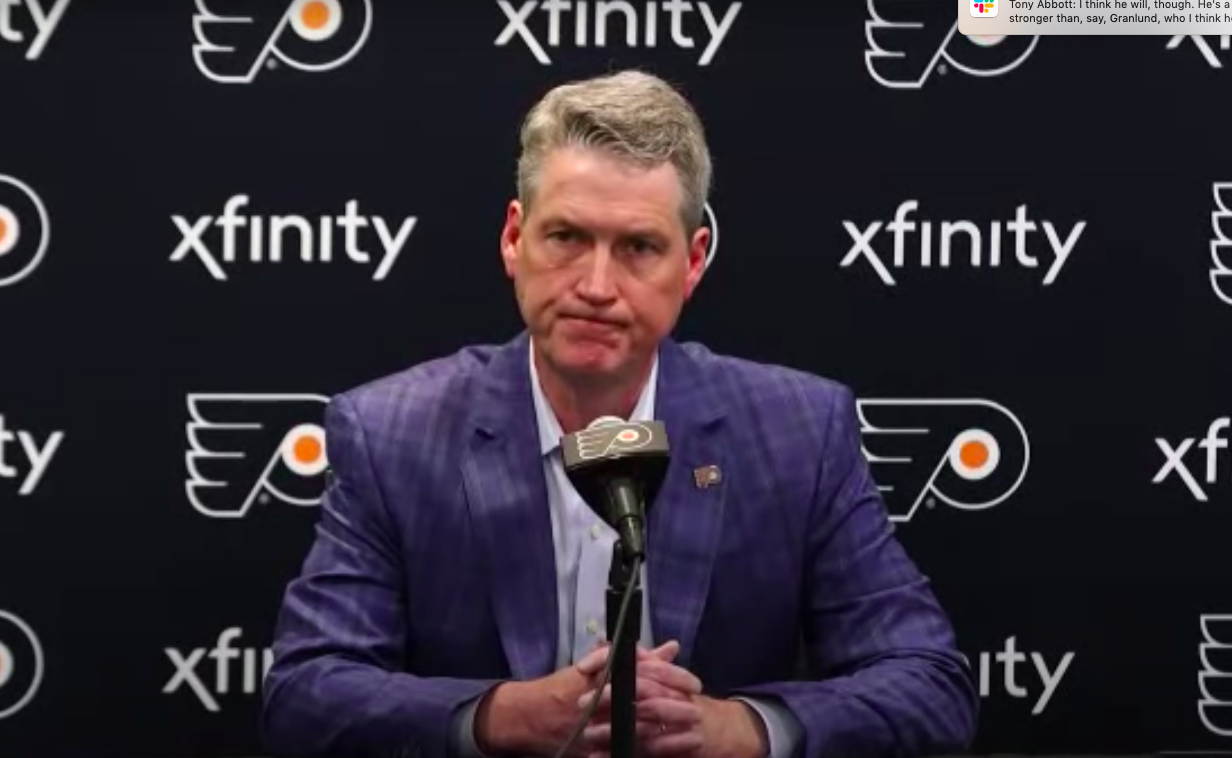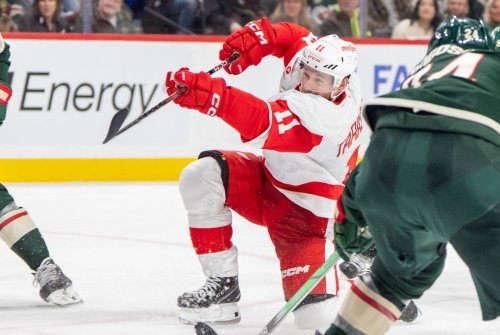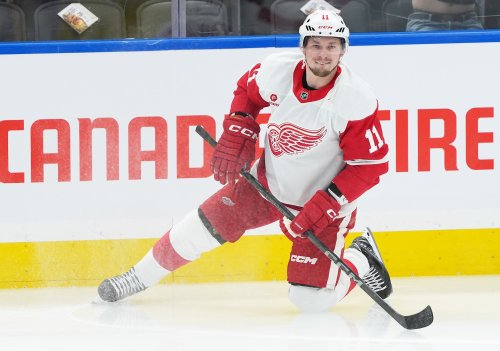
It was clear that Chuck Fletcher had run his course by the end of the 2017-18 playoffs. His Minnesota Wild team, which he'd essentially built from scratch, fell to the upstart Winnipeg Jets in five games. Instead of running it back, owner Craig Leipold decided to move on, bringing in Paul Fenton.
For a while, this seemed like a Be careful what you wish for-type scenario. For all of Fletcher's faults — being too happy to trade future draft picks and constantly being in salary cap trouble — he built a very good team. The Wild had elite defensive depth and a group of very good forwards. It just wasn't enough.
When Fenton torched that team, trading Nino Niederreiter, Mikael Granlund, Charlie Coyle, and narrowly avoiding moving Jason Zucker for little return, it would've been fair to wonder if the grass wasn't greener on Fletcher's side of the fence.
Meanwhile, Fletcher jumped to the Philadelphia Flyers midway through the 2018-19 season. Suddenly, he had the kind of star power he never had in Minnesota. Claude Giroux posted a 100-point season, with running mate Jakub Voracek coming off 85 of his own. Sean Couturier combined Eric Staal's offense and Mikko Koivu's defense in one package. Shayne Gostisbehere, Ivan Provorov, and Travis Konecny were all promising youngsters.
But instead of taking any sort of leap, Philly spun their tires in a mediocrity that would feel at home in the State of Hockey. They made the playoffs once, advancing to the second round in the 2020 bubble. In the meantime, Fletcher made mistake after mistake, suggesting he learned the wrong lessons in Minnesota.
When Fletcher needed a center in the summer of 2016, Fletcher didn't make an expensive swing on David Backes or Frans Nielsen. Instead, he went bargain hunting and found Staal, who rejuvenated his career in Minnesota. At a cool $3.5 million, Fletcher knocked it out of the park by buying low and taking a smart bet on a player who still drove offense.
Who did he call when he needed a center in Philadelphia in 2019? Kevin Hayes, who had never broken 60 points in his career. Points aren't everything, and Hayes drove offense, but not at an exceptional level. Three years into a 7-year, $50 million deal, Fletcher has a solid but unspectacular player on his hands, making too much money for too long.
Where have we heard that before?
In Minnesota, defenders like Jared Spurgeon and Jonas Brodin were analytical darlings, elite at shutting down opponents. Instead of targeting similarly undervalued players, though, Fletcher decided to add Rasmus Ristolainen to shore up his blue line.
In fairness, picking up Ryan Ellis (who was injured most of last season) was a savvy-looking move. But that value was canceled out entirely by Ristolainen, who'd long been a boat anchor for his Buffalo Sabres teams. Over the previous three seasons in Buffalo, Ristolainen was in the 16th percentile for offense, and the fourth percentile for defense, according to Evolving Hockey. Ghastly numbers.
Fletcher thought he could get more out of him, and he did. Ristolainen finished last season in... the 48th percentile for offense and the 21st percentile for defense. Where was the upside? And was that worth the 14th overall pick last season and a second-rounder next year? Incredibly, Fletcher somehow wound up repeating the Cam Barker trade last summer!
Even worse, he extended Ristolainen to a five-year deal! Which demonstrates how he hasn't improved his biggest weakness: cap management.
Look at the Flyers three years from now, in the 2024-25 season. Fletcher has nine players under contract, but those nine players take up over $52 million. That's 62% of his flexibility gone under a projected $84.5 million cap. While some players signed are young and on reasonable deals (Konecny and Joel Farabee), just look at the rest.
They'll give over $7 million to a 32-year-old Hayes. $5.1 million to Ristolainen. Almost $6 million to Cam Atkinson, at age 35. Even Couturier and Ellis, who are on reasonable deals in terms of their cap hits, will be well into their 30s. And that's before any raises young players like Owen Tippett, Bobby Brink, and Cam York earn in the meantime.
Not that they're nearly enough to keep the Flyers competitive in the future. They've already lost Giroux and Voracek. Hell, Fletcher even sent the Arizona Coyotes a second-round pick to dump Gostisbehere. A declining James van Riemsdyk is in the last year of his contract. That old Flyers team is dead. A GM should be able to see the writing on the wall and scrap the team for parts.
Except that's not how Fletcher operates. Many in Minnesota defended Fletcher by saying that his rebuild-on-the-fly strategies and quick fixes were likely because of ownership, not necessarily from him. His time in Philly -- and Guerin operating much more patiently than Fletcher did in Minnesota -- is debunking that theory. Rebuilding-on-the-fly is hard-wired into Fletcher's DNA.
How else can you explain his coaching moves? His first hire was Alain Vigneault, a coach whose personality wears on his players but has had success getting his teams to play defensively. When Vigneault didn't work out, his best answer was Mike Yeo. Not only was he a defensive coach with a personality that comes with a shelf life, but he was also a retread from Fletcher's Minnesota days. Predictably, it didn't work out.
Now he's hiring John Tortorella, who is... a defensive coach whose personality not only wears on his teams but often falls out with young players. Suddenly, Farabee, Tippett, and Brink are gonna get benched if they score in too cool of a way. No doubt, Tortorella is a fine tactician if you want to squeeze out some extra 2-1 wins, but why is an ancient team with a dead-last finish in the Metro trying to make the playoffs next year?
It's because that's all Fletcher knows: build a mediocre team, and tweak it indefinitely without tearing it down. We're seeing a preview of exactly what would've happened to the Wild if Fletcher was given another season, or two, or three to pilot Minnesota out of the overwhelmingly average mess he'd gotten into. Say whatever you want about Fenton taking a sledgehammer to the roster, there's nothing Fletcher's done since to suggest that there was any sort of bright future in Minnesota as long as he was there to continue spinning the Wild's wheels.
Think you could write a story like this? Hockey Wilderness wants you to develop your voice, find an audience, and we'll pay you to do it. Just fill out this form.







Recommended Comments
There are no comments to display.
Join the conversation
You can post now and register later. If you have an account, sign in now to post with your account.
Note: Your post will require moderator approval before it will be visible.